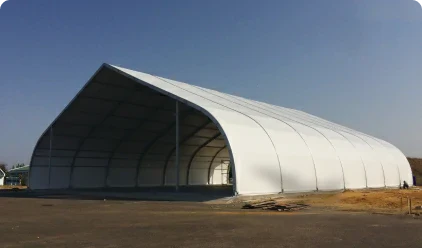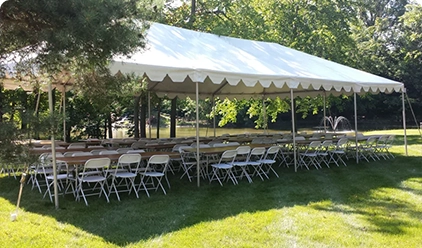How Much Does It Cost to Build a 60x60 Hangar?

Building a 60x60 airplane hangar, while relatively small in comparison to larger hangars, still represents a significant investment. The 60x60 hangar cost typically ranges between $300,000 and $400,000, translating to approximately $83 to $111 per square foot.
Although you might initially estimate the cost to fall between $250,000 and $300,000, several factors often push the final price beyond these expectations. These include:
- Site Preparation
- Basic Facilities
- Hangar Doors
- Building Materials
- Labor Costs
- Land Permits
This article will provide a detailed breakdown of each of these factors to give you a comprehensive understanding of the 60x60 hangar cost and what influences it.
The Factors of 60x60 Airplane Hangar Cost

Aircraft Hangar Size
The size of the hangar is a primary cost factor. A 60x60 hangar requires a certain height to ensure aircraft can easily enter and exit. The taller the hangar, the higher the construction costs, as more materials and labor are needed.
Building Structure
The choice of building materials significantly impacts the overall cost. Options include:
- Aluminum Structure: Aluminum alloy is lightweight, corrosion-resistant, and highly suitable for aircraft hangars. It offers easy processing and a wide range of customizable options, making it an excellent choice for various environments and design needs.
- Steel Structure: Steel structures are durable and weather-resistant. However, in certain environments, steel is prone to rusting, which can significantly increase maintenance costs.
- Concrete Structure: Offers excellent durability but comes with a higher cost for materials and labor.
- Wood Structure: Generally more affordable but less durable and not typically recommended for aircraft hangars.
Ground Preparation
Land acquisition or leasing is a critical initial cost. If leasing, additional costs will incur over time. The condition of the land also affects the cost—extensive concrete work or ground leveling may be necessary, which can be expensive.
Aircraft Hangar Door
The choice of hangar door is a crucial decision that significantly impacts both the functionality and cost of your military hangar. Each door type has its unique features, installation requirements, maintenance needs, and associated costs.
Understanding these differences can help you select the most cost-effective option that meets your operational needs.
- Clamshell Doors
However, they require more space on either side of the hangar and may not be suitable for sites with limited space.

- Sliding Doors
However, they require manual operation unless automated, and their tracks need regular maintenance to prevent debris accumulation, which can affect functionality.

- Roll-up Doors
However, they provide less insulation and security compared to other door types, so they may not be suitable for all climates.
- Bi-fold Doors
- Hydraulic Doors
They are suitable for wide hangars and provide high levels of security and insulation. However, they can be costly due to the hydraulic system's complexity and maintenance needs.
Choosing the right door type involves considering factors such as budget, climate, hangar size, and operational needs. Balancing these considerations will help you find a door that provides the best performance and cost-efficiency for your specific hangar setup.
Licenses
Obtaining the necessary permits and licenses is essential and can significantly impact your project's overall budget. The costs for these permits vary by location and may include building permits, safety inspections, environmental impact assessments, and local zoning approvals.
Failing to secure the proper permits can lead to construction delays, fines, or even legal action. Therefore, it is crucial to research and allocate funds for these costs early in the planning phase to avoid unexpected expenses and ensure compliance with local regulations.
Labor
Labor costs are a substantial part of hangar construction and depend on the scope of the project and the choice between DIY construction or hiring professionals. While building it yourself may seem cheaper, professional installers ensure that the construction meets all safety standards.
Itis completed efficiently, and minimizes the risk of costly mistakes, making it a worthwhile investment for most projects. Hiring a professional team typically ranges from $65,000 to $125,000
Basic Facilities
To ensure smooth and efficient operations, it's essential to equip your aircraft hangar with key utilities such as plumbing, electrical systems, lighting, HVAC, and insulation. These features not only enhance the comfort and safety of the personnel and aircraft but also contribute to long-term operational reliability.
While they may increase the initial construction cost, these facilities are investments that significantly improve the hangar's functionality and overall value, creating a more efficient working environment.
Value-Adding Features
Adding certain features can significantly increase the resale or lease value of a hangar. Installing a bathroom, air conditioning, or office space offers added comfort and functionality, appealing to potential buyers or tenants.
These enhancements can make the hangar more versatile and attractive, providing competitive advantages in the market and potentially generating a higher return on investment.
Plan Your 60x60 Hangar Budget Wisely

When planning your 60x60 hangar cost budget, consider all the potential costs according to your needs. Use the table below to outline the factors involved:
|
Cost Factor
|
Estimated Cost Range
|
|
Land Lease
|
$0.10 - $3.00 per square foot per year
|
|
Land Preparation
|
$10,000 - $50,000 (depending on site conditions)
|
|
Building Materials
|
$20 - $80 per square foot (varies by material type and quality)
|
|
Aluminum Structure
|
$30 - $50 per square foot
|
|
Steel Structure
|
$40 - $70 per square foot
|
|
Wood Structure
|
$20 - $40 per square foot
|
|
Concrete Structure
|
Approximately $100-$125 per cubic foot
|
|
Hangar Door
|
$10,000 - $30,000 (depending on type)
|
|
Installation
|
$65,000 - $125,000
|
|
Insulation
|
$1.50 - $3.50 per square foot
|
|
HVAC
|
$3,000 - $15,000
|
|
Plumbing
|
$5,000 - $15,000
|
|
Electrical Work
|
$3,000 - $10,000
|
|
Additional Options
|
|
|
Bathroom
|
$8,000 - $20,000
|
|
Office Space
|
$15,000 - $40,000
|
These ranges are based on typical estimates and can vary depending on specific materials, labor rates, and customization options.
Stick to Your Budget with a Reputable Supplier
After understanding all the costs involved, it's essential to choose a reputable supplier who can provide a comprehensive solution. Sheltent offers everything from site planning and installation to hangar doors and various customization options. Partnering with Sheltent ensures that your 60x60 hangar cost stays within budget while meeting all your needs.

SHELTENT
https://www.sheltent.com/
Sheltent is not only a tent company, but also an internationally successful specialist in mobile and modular space solutions. With deep industry expertise and research and development capabilities accumulated over the past 30 years, we offer space solutions for all types of space scenarios, where you can find the perfect tent solution for every scenario!









































